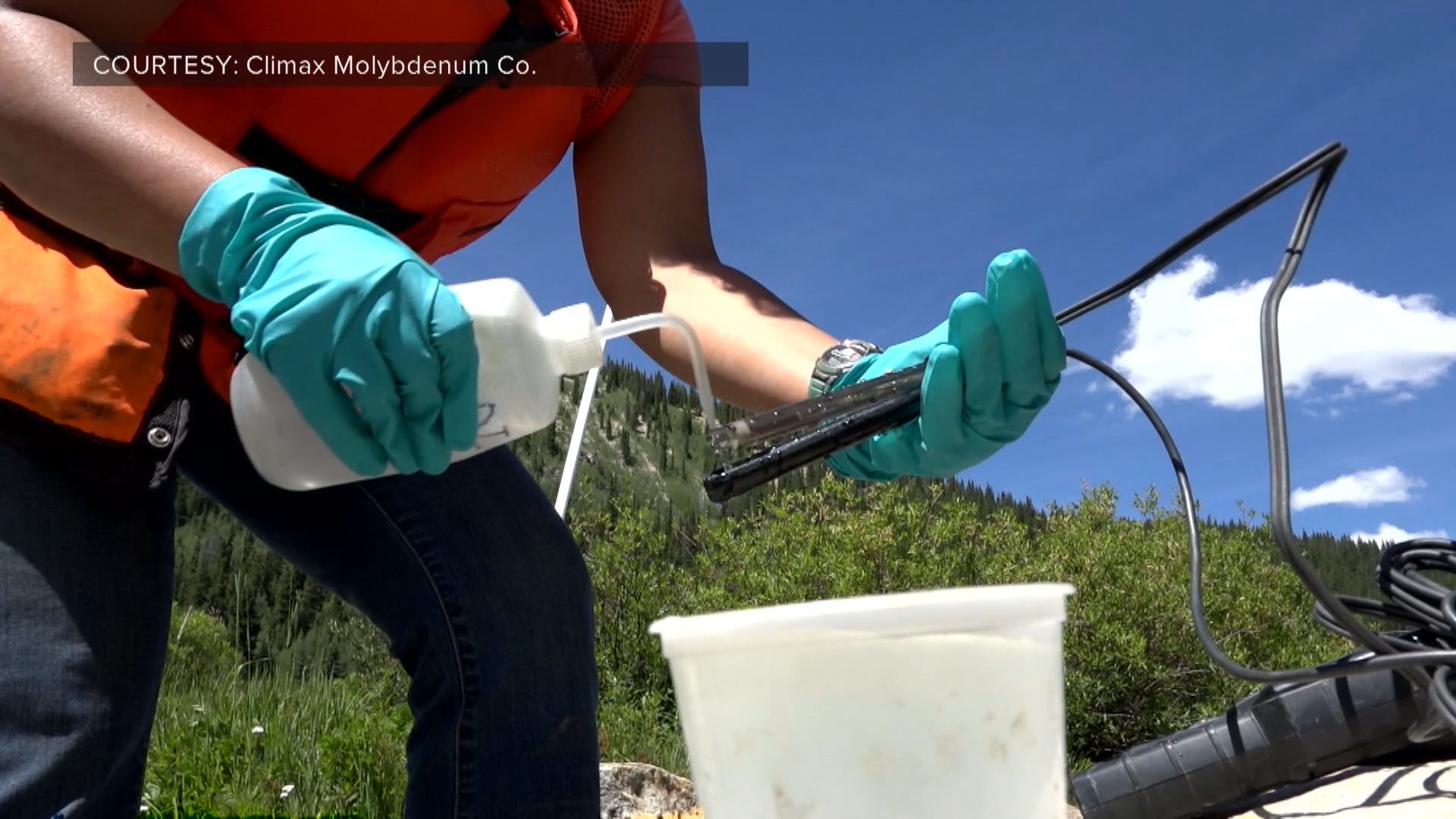A mining company's proposal up in the mountains could potentially impact our water supply down in the metro area.
It's focused on a metal called molybdenum.
The Climax Molybdenum Company wants to change restrictions so it can release more of the metal into the water.
The Climax Molybdenum mine is around 15 minutes from the heart of Leadville. Molybdenum can be used to strengthen steel and iron for anything from ships to cars.

The Climax mine discharges into Ten Mile Creek, and Climax wants to change state molybdenum restrictions to allow roughly 42 times more to be released into the water.
Ten Mile Creek flows into the Dillon Reservoir. Denver Water says from there it goes to the South Platte River Watershed, "from which the Foothills and Marston treatment plants intake near Strontia Springs Reservoir. The South Platte River watershed provides approximately 80 percent of our water supply."
Climax says the current standards need to be updated based off newer studies by the International Molybdenum Association, a European organization.

On its website it says it represents molybdenum producers, consumers, converters, traders and assayers.
Climax has also questioned the need for restrictions. The EPA doesn't currently have maximum molybdenum rules.
Climax says there is a lack of evidence for health impacts. Here is the full statement from a Climax company spokesman Eric E. Kinneberg.
"Climax is requesting this change primarily because the science behind the current standards did not meet appropriate research guidelines nor go through a rigorous review process. The new standards being requested are based on multiple studies that have been scientifically reviewed, including by the EPA, and are more reliable. This proposal is not based on any intent or need to increase molybdenum in the Climax discharges, and in particular, Climax does not intend to change its mining or water treatment process in a manner that would cause an increase in the historical discharge of molybdenum to Tenmile Creek."
When 9NEWS asked why they want the levels changed, Climax didn't explain further beyond their statement.
In their proposal, the company says if restrictions were eased it would be more cost effective for the company when it comes to water treatment.
But people like Julie Collins, who splits her time between Denver and Leadville, said there should be more unbiased studies.
"I'm not going to stand anywhere and say don't change the levels," Collins said. "What I'm saying is we need to understand the implications before we make decisions."
Small amounts of molybdenum is considered good for people, but the Rocky Mountain Poison Center says too much can cause symptoms like nausea, abdominal pain. How much is too much is hard to say.

The Water Quality Control Commission is responsible for changing water quality rules in Colorado, and said there isn't a lot of data about the impact of molybdenum on humans.
One expert commented on the proposal saying many of the studies have been done on rats and mice.
Another toxicologist is worried about the impact on agriculture and cattle.
"They are reinventing the wheel for their benefit," Susan Hofer, who lives in Leadville, said.
The people who call Leadville home don't deny the positives that come with the mine, but also say it's their responsibility to ask questions.
"It's a part of the community," Collins said.

Next year the EPA said it's going to start taking a look at possible molybdenum regulations. It's not just about studying the impact on humans, but on agriculture and animals as well.
People can e-mail in their input by December 27th to cdphe.wqcc@state.co.us.
The Colorado Department of Health and Environment will hold a "limited scope" rulemaking hearing that is site specific on January 8.
A hearing for the statewide rules is being planned for November of 2019.

